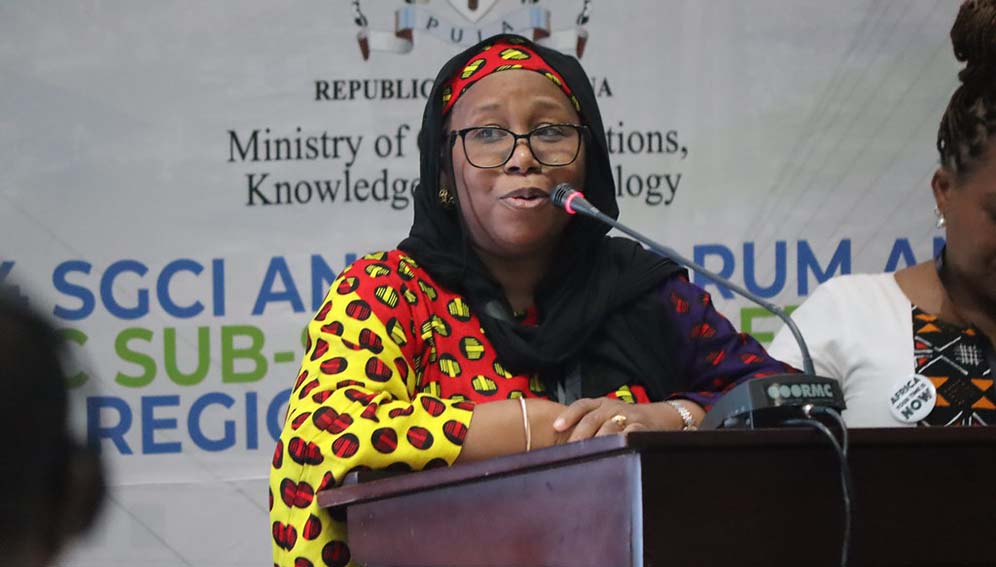Nigeria’s innovation landscape is experiencing a breakthrough. In a bold move to bridge academia and the marketplace, the Tertiary Education Trust Fund (TETFund) has teamed up with the Science Granting Council Initiative (SGCI) to breathe life into university research and translate it into viable commercial products.
At the heart of this partnership lies TETFund’s Research for Impact (R4i) programme, an initiative already making waves across Nigerian tertiary institutions. In June 2024, 18 researchers and lecturers from 14 universities were selected and placed into four teams for an intensive one‑year incubation at the Innov8 Hub in Abuja. Their mission: to take academic ideas from lab benches to market shelves.
Supporting this mission is a generous $250,000 grant from SGCI, backed by Canada’s IDRC and the UK’s FCDO—a component of a $2 million pot designated to support 4 of the 82 SGCI-funded projects across Africa, with Nigeria playing a featured role. The outcome has been nothing short of inspiring: all four teams have now presented working, market-ready prototypes.

The prototypes span multiple sectors:
- AirVolt – a vertical-axis wind turbine engineered to deliver clean, affordable electricity in underserved areas.
- JollyFrier – an automated gas-and-solar hybrid garri-frying machine designed to alleviate health hazards for garri producers while improving efficiency.
- A solar-powered biosensor water filtration system, equipped with three-tier purification and IoT alerts for contaminants.
- A drought-resilient agricultural tech solution aimed at boosting crop yields in northern Nigeria.
These four innovations come with a projected investment requirement totalling approximately ₦550 million to transition from prototype to mass production.
At the SGCI Closing Demo Day in Abuja, TETFund Executive Secretary Sonny Echono reflected on the impact of the collaboration. He argued that these prototypes illustrate universities’ capacity to ignite economic growth and strengthen national development across the SDGs, particularly in clean energy, water access, and sustainable cities.
Echono highlighted that this initiative is a model of the “Triple Helix”—a dynamic partnership between government, academia, and industry—capable of converting research into economic value. “We are not just funding prototypes,” he remarked. “We are fueling a movement… where a single innovation can ripple outward, creating jobs and bolstering Nigeria’s image as a hub of African ingenuity.”
TETFund & SGCI Join Forces to Turn Nigerian Research into Products
TETFund’s strategic vision complements this collaboration. Earlier in 2025, the Fund announced plans to establish 18 innovation hubs across public tertiary institutions. These hubs—clustered under the R4i programme’s umbrella—are already reshaping the academic culture, steering it from theoretical output toward applied innovation.
According to Dr. Saliba Bakare, Director of Research & Development at TETFund, the organisation has channelled nearly ₦2 trillion between 2011 and 2024 into infrastructure, staff development, and research funding. The introduction of these hubs reinforces Nigeria’s strategy to reorient tertiary education around practical learning and technological progress.
Dr. Bosun Tijani, Nigeria’s Minister of Communication, Innovation and Digital Economy, voiced strong support for these projects. Represented by Francis Sani, the Minister’s Technical Adviser, he confirmed the ministry’s commitment to collaboration across government, academia, and industry. These prototypes, he noted, signal Nigeria’s readiness to harness homegrown innovation, which in turn can stimulate economic growth and address deep-seated societal issues.
There’s also growing interest from the African Centre for Technology Studies (ACTS) in Kenya, Innov8 Hub, and other stakeholders across Africa. Dr. Nicolas Odongo of ACTS praised Nigeria’s prototypes as a testament to “the power of knowledge to transform lives, communities and futures.” Similarly, Innov8’s Deputy General Manager, Dr. Deji Ige, noted the shift away from research for mere publications toward innovation with impact, signalling a sea change in academic priorities.
On a human level, these projects have resonated deeply with participants. For example, Prof. Victor Nwaugo, lead researcher for the biosensor device, reflected that:
“Without SGCI, our work would have remained on paper… now we’re driven to create solutions that impact society.”
Taken together—with the support of policymakers, academia, funders, and the private sector—these efforts suggest Nigeria is building a sustainable pipeline for technology, innovation, and entrepreneurship within its university system.

What Lies Ahead
These four Nigerian prototypes represent only the beginning. To reach the market, each will require roughly ₦550 million of downstream investment—an opportunity for private investors, government agencies, impact-focused venture funds, or development finance arms.
Should investment materialise, these products could:
- Enhance rural electrification through AirVolt.
- Revolutionise staple food production, transforming garri processing and women’s health through JollyFrier.
- Expand access to safe drinking water via the water filtration biosensor.
- Enable climate-smart farming in drought-prone regions.
Beyond these projects, TETFund’s 18 innovation hubs could serve as national centres of excellence, integrating universities with incubators, industry partners, and investors, mirroring successful models seen in East Asia and elsewhere.
However, success depends on effective coordination. Donor coordination, policy support, and a coherent national strategy will be essential. This includes enabling regulations, attractive investment incentives, and educational curricula that embrace entrepreneurial and problem-solving mindsets.
According to policy analysts, Nigeria could benefit from establishing a dedicated national research & innovation funding agency, as ATPN, TETFund, and selected universities have proposed. Such a body would strengthen Nigeria’s ability to attract international R&D funding and manage the innovation pipeline more effectively.
Conclusion
The TETFund‑SGCI collaboration marks a milestone in Nigeria’s journey from academic research to real-world impact. With four market-ready prototypes and ambitions for expansion into 18 institutional innovation hubs, the initiative heralds a future where tertiary education is deeply embedded in commercialisation and social change.
This partnership showcases the synergy between government policy, academic capability, and market opportunity—truly the “Triple Helix” at work. As these prototypes move from demo to deployment, Nigeria stands to unlock new jobs, healthier communities, and a more diversified, innovation-led economy.
Join Our Social Media Channels:
WhatsApp: NaijaEyes
Facebook: NaijaEyes
Twitter: NaijaEyes
Instagram: NaijaEyes
TikTok: NaijaEyes
READ THE LATEST EDUCATION NEWS







































